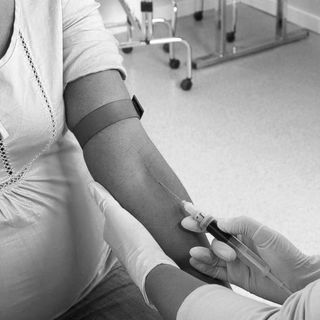If you’re worried you didn’t wow the person you just met, you’re probably wrong. According to a new study published in the journal Psychological Science, we’re better at making a good first impression than we think.
Researchers dub this the “liking gap,” and say it can affect our ability to develop new relationships.
“Our research suggests that accurately estimating how much a new conversation partner likes us — even though this a fundamental part of social life and something we have ample practice with — is a much more difficult task than we imagine,” explain Erica Boothby, PhD, from Cornell University, and Gus Cooney, PhD, from Harvard University, the authors of a new study exploring whether individuals think they make a good first impression.
In other words, we’re really bad at accurately guessing what people think of us.
Boothby and Cooney conducted a series of five studies to break down the liking gap. The first study involved paired strangers having a 5-minute conversation with typical icebreaker questions like “Where are you from?” or “What are your hobbies?” Following this, participants were asked about how much they liked their conversation partner, and how much they thought the partner liked them.
Researchers found that on an average, participants liked their partner more than they said they felt their partner liked them. But logically, it can’t be true that both people in a conversation like their partner more than their partner likes them. This reporting, then, was a sign of flawed self-analysis, researchers say. Each partner failed to spot the other’s behavioral signals of enjoyment and interest, which the disinterested third-parties of the research team clearly observed in video recordings of interactions.
“They seem to be too wrapped up in their own worries about what they should say or did say to see signals of others’ liking for them, which observers of the conservations see right away,” says Margaret S. Clark, Professor of Psychology from Yale University.
Other studies showed that the duration of the conversation did not change the way people perceived what others thought of them, meaning the liking gap remained, even in real-world settings scenarios. A study of actual college roommates showed that the liking gap endured even months into knowing each other.
The study runs counter to previous research that has suggested people see themselves in a more positive light compared to how others see us, in regards to areas ranging from driving skills, intelligence or our chance of experiencing illness, accident or divorce.
Researchers say their findings are most applicable in the context of small talk.
“The liking gap works very differently. When it comes to social interaction and conversation, people are often hesitant, uncertain about the impression they’re leaving on others, and overly critical of their own performance,” say Boothby and Cooney. “In light of people’s vast optimism in other domains, people’s pessimism about their conversations is surprising.”
This could be an act of self-preservation, they say, an assumption that keeps us from getting ahead of ourselves. The flip side is, Boothby and Cooney say, this defense mechanism may be counterproductive when it comes to building long lasting relationships with those who do like us.
“As we ease into new neighborhood, build new friendships, or try to impress new colleagues, we need to know what other people think of us,” they say. “Any systematic errors we make might have a big impact on our personal and professional lives.”




